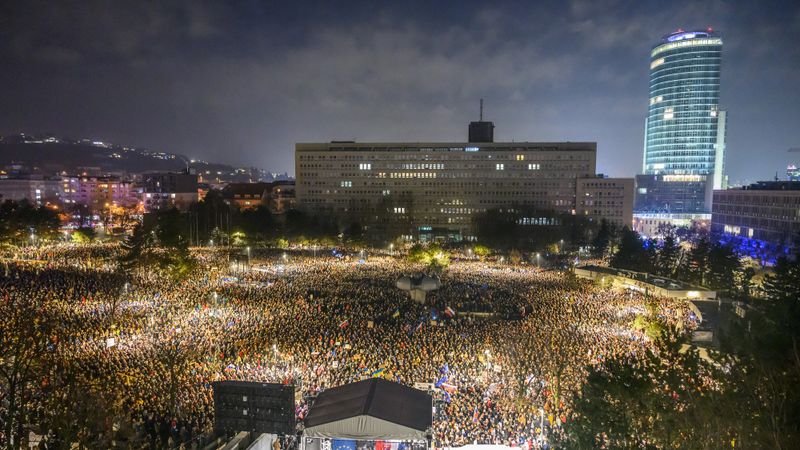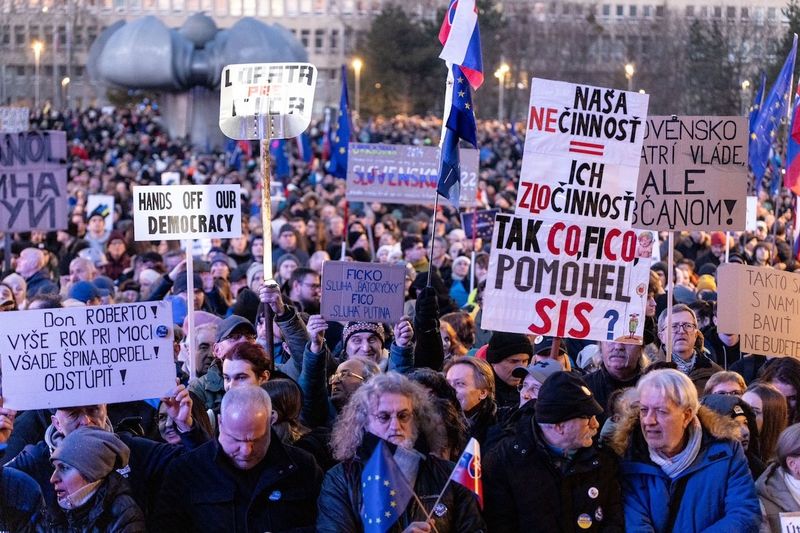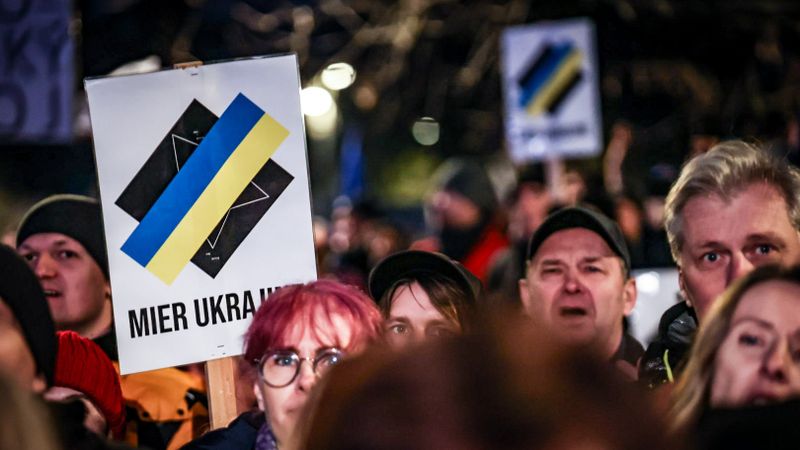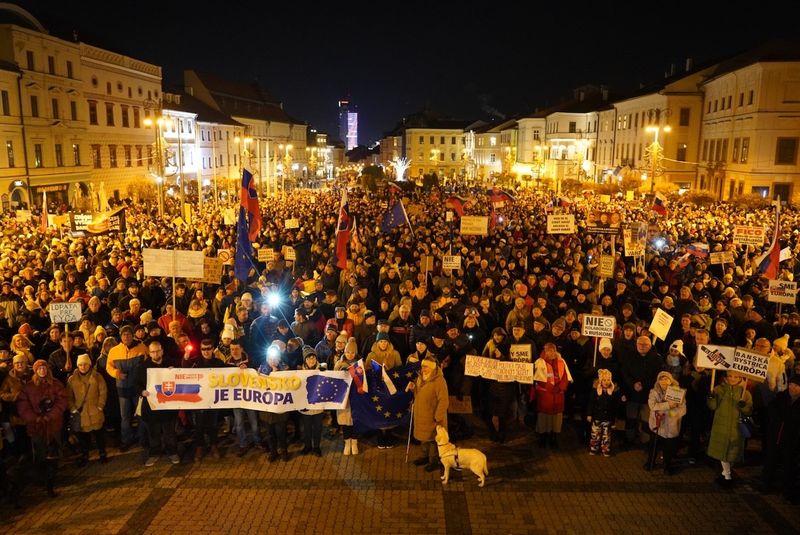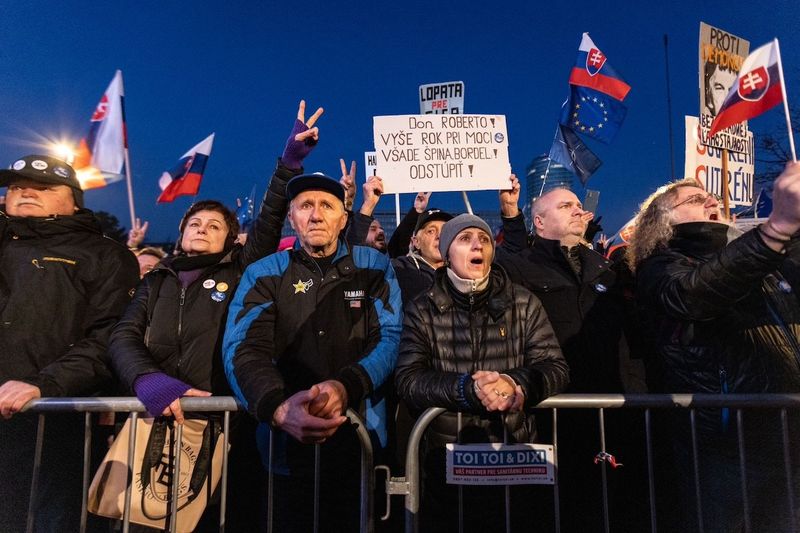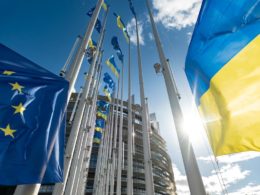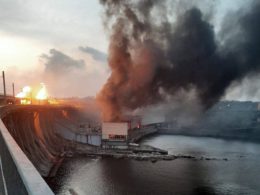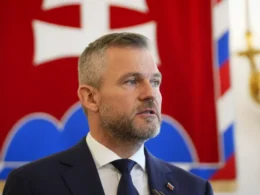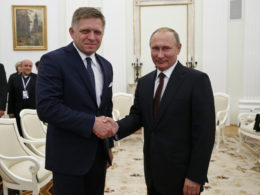Approximately 100,000 people protested across Slovakia on January 24, demanding Prime Minister Robert Fico's resignation amid escalating tensions over his pro-Russian stance and claims of an orchestrated coup attempt.
The demonstrations, organized by the Peace for Ukraine initiative, drew an estimated 60,000 participants in Bratislava alone, marking one of the largest protests in Slovakia's modern history. The rallies spread across nearly 30 Slovak cities and extended to Polish, German, Czech, and Irish locations where Slovak expatriates gathered in solidarity, according to Aktuality.sk.
As a NATO and EU member sharing a border with Ukraine, Slovakia's apparent drift toward Moscow under Fico's leadership has raised alarms about Russian influence in Central Europe. The prime minister's invocation of "Maidan" – referring to Ukraine's 2014 pro-democracy Euromaidan revolution that ousted a pro-Russian president – particularly resonates as his government appears to be following a playbook similar to other leaders who have challenged their countries' Western orientation.
Earlier this week, Fico claimed that foreign-backed experts who participated in Georgia's Rose Revolution and Ukraine's Maidan were operating in Slovakia. "Ladies and gentlemen, I can confirm that there is a group of experts operating in Slovakia who were actively involved in events in Georgia and directly on the Maidan in Ukraine," Fico stated at a press conference, citing intelligence reports.
Ukraine's Foreign Ministry spokesperson Heorhiy Tykhyi dismissed these allegations as "a standard fairy tale" reminiscent of narratives used in Georgia, aimed at intimidating Slovak society and consolidating Fico's political base.
The protests follow Fico's controversial December meeting with Vladimir Putin in Moscow, where he became only the third EU leader to meet with Putin since Russia's full-scale invasion of Ukraine began. During that visit, Fico proposed Slovakia as a neutral platform for Russia-Ukraine negotiations and discussed normalizing Slovak-Russian relations.
Tensions escalated further when Fico threatened to suspend emergency electricity supplies to Ukraine and reduce support for Ukrainian refugees in response to Kyiv's decision to halt Russian gas transit through its territory.
Soon after, Slovak opposition leaders moved to launch a vote of no confidence, seeking to remove the pro-Russian prime minister from power. This initiative was backed by the protesters, who presented a new demand at the rallies, calling for Fico's resignation.
"Let me explain to you, Mr. Prime Minister, why we are here. We are here to politely and clearly let you know that we chose years ago where we want to belong. We want to belong to countries where the law applies, international agreements are respected and institutions for checking power function," actor Tomáš Maštalír told the crowd in Bratislava.
The demonstrations remained peaceful despite government warnings about potential violence and provocations.
"Despite the warnings of the highest constitutional officials about the threat of violence, possible provocations and a coup, all rallies were peaceful and conducted in a dignified and peaceful spirit," the Peace for Ukraine team stated in a press release.
President Peter Pellegrini, Fico's former protégé, aligned himself with the prime minister's claims about destabilization attempts, though notably avoided using the word "coup." However, no concrete measures were adopted at Thursday's Security Council meeting, and Pellegrini confirmed there is currently no risk of declaring a state of emergency.
Organizers have announced the next protest for 7 February, indicating their commitment to continuing pressure on Fico's government despite accusations of foreign interference and coup plotting.
Related:
- Slovak opposition to launch vote of no-confidence vote after Fico’s pro-Moscow gas claims
- Thousands of Slovaks protest Fico’s pro-Russian stance as Ukraine tensions rise
- Zelenskyy: Slovakia’s Fico refused help during Russian gas transit halt, chose Moscow

